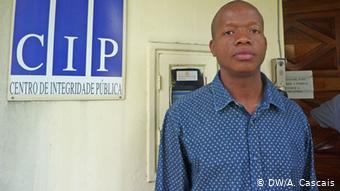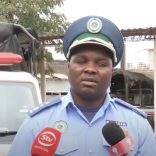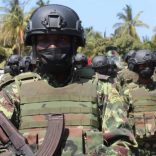Mozambique: Police say teams mobilised to rescue Maputo kidnapping victim – Watch
Hidden debts: Could Jean Boustani and others bring new elements?

FILE - Jean Boustani. [File photo: Zambeze]
The Attorney General of Mozambique (PGR) has issued international arrest warrants against three former Credit Suisse bankers and shipbuilding company Privinvest representative Jean Boustani.
This however does not mean that they will be tried in the country.
For the Centre for Public Integrity’s (CIP) Baltazar Fael, this is an important step towards clarifying the more-than €2 billion hidden debt scandal, although the researcher finds the secrecy surrounding the case regrettable.

DW Africa: How do you see the international arrest warrant issued by the PGR against the three former bankers of Credit Suisse and Jean Boustani?
Baltazar Fael (BF): I think it is one step in the PGR’s investigation. There are aspects of the process that we do not yet know about. We know the case all the way up to the accusation by the Public Prosecutor, then there was the court’s dispatch of indictment, which I think was not made public. Probably, there are elements of the investigation that need to be completed and, when this is done, it is necessary to make every effort to find the people who may have the best knowledge to clarify the case.
Read more: Boustani tells US Court how contacts began with Mozambique – report
DW Africa: Do you believe that this is one of the ways to clarify all the outlines linked to the case of hidden debts?
BF: We still don’t know exactly at what point the case is; above all it is not known if there are other steps yet to be taken. Probably, the PGR thinks that, with these individuals responding to the case in Mozambican territory, more elements can be brought in to clarify the truth in order to complete the evidence and make the final indictment. It is necessary to take into account that, at this moment, there is still no definitive indictment, because an appeal to the dispatch of indictment is pending.
DW Africa: Do you think that now Jean Boustani will be held accountable, or be able to give more details about all the outlines behind this scheme?
BF: I think so, not least because the American authorities refused to collaborate with the Mozambican judicial entities, although at the end of the process the trial transcripts were made available. What cannot be done in terms of transnational and international law, is to try the same individual twice for the same facts. This is the principle of ne bis in idem (double jeopardy), which needs to be taken into account.
Read more: Mozambique: Extradition requests, arrest warrants for “debt mentors” & citizen Boustani – Noticias
So it will first be necessary to analyse the facts of the first case, in which he was acquitted [in the US], and then analyse the facts that he may be tried for in the new case [in Mozambique], to see if there are any similarities. If there are similarities, having been found not guilty in the US for these specific facts, he cannot be tried, but he can be tried for other facts which might have happened within this process. So, what we are looking for is that Jean Boustani brings more elements to the process. And what we all hope for is the clarification of the material truth.
DW: Since he cannot be tried, can he be called as a witness [declarant]?
BF: If there are new facts, not those for which he went on trial for in the US, he can be tried. But he can also be called as a witness or a declarant, without being accused in this case.
Undeclared debts: PGR denounces manoeuvres to pervert justness – Noticias












Leave a Reply
Be the First to Comment!
You must be logged in to post a comment.
You must be logged in to post a comment.